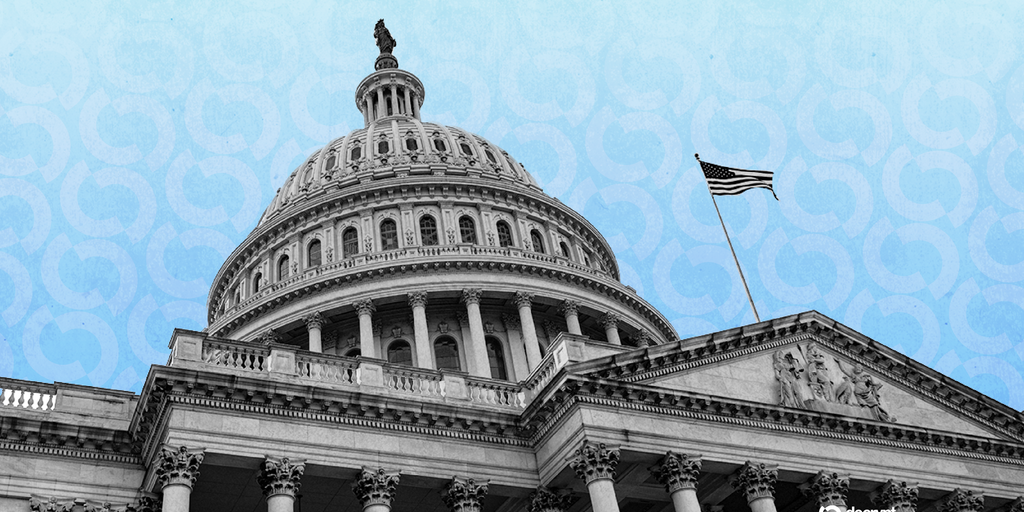
Summary
- A group of 114 crypto firms and tech advocacy organizations submitted a letter to the Senate Banking Committee, urging strong legal protections for software developers in any forthcoming legislation on crypto market structure.
- The letter pointed out that developers of decentralized software shouldn’t be held criminally responsible for how others utilize their programs, likening public blockchains to neutral infrastructures such as roads or the internet.
- The signatories, including Coinbase, Grayscale, Solana Labs, and Andreessen Horowitz, cautioned that the industry will not back the legislation without these protections, in light of the conviction of Tornado Cash developer Roman Storm under recent federal law.
On Wednesday, a vast coalition of tech advocacy groups and crypto companies released a letter to the Senate Banking Committee, stating they will collectively oppose an anticipated crypto market structure bill unless it incorporates essential legal protections for software developers.
“We […] present a unified front to Congress: ensure robust, nationwide protections for software developers and non-custodial service providers in market structure legislation,” the letter states. “Lacking such safeguards, we cannot support a market structure bill.”
A total of 114 entities signed the letter, including Andreessen Horowitz, Coinbase, DCG, Grayscale, Kraken, Paradigm, Solana Labs, and Uniswap Labs. Various lobbying groups backed the initiative, coordinated by the DeFi Education Fund, including the Chamber of Progress, a mainstream tech advocacy organization partially funded by Amazon, Apple, Google, and Uber.
An insider informed Decrypt that this initiative was partly motivated by fears that some Senate Democrats might soon try to introduce provisions to the market structure bill that could criminally implicate software developers for publishing programs leveraged for money laundering or sanctions evasion.
“The issue of preventing developers from facing such criminal liability unites the industry as a whole,” the source stated.
Today’s letter commended the House for passing the CLARITY Act, its own take on market structure legislation, which included provisions effectively exempting decentralized finance and peer-to-peer on-chain transactions from crypto regulation.
However, it also characterized such efforts as inadequate and called on the Senate to go further by incorporating language that protects software developers from criminal liability.
“The leadership within the crypto sector is united on a core principle: public blockchains serve as neutral infrastructure comparable to the internet, roads, or bridges,” Miller Whitehouse-Levine, CEO of the Solana Policy Institute and a co-signer of the letter, remarked in a statement shared with Decrypt.
“The U.S. does not prosecute the engineers who construct our highways when those paths are misused for criminal acts,” he added. “Congress must apply that same rationale to digital infrastructure and integrate comprehensive protections for developers and non-custodial service providers into any market structure legislation.”
Importantly, today’s letter requested that the Senate’s market structure bill explicitly clarify that software developers cannot be prosecuted as operators of money transmitting businesses under U.S. code 1960. It also insisted that the federal exemption supersedes all conflicting state legislation.
Earlier this month, the Trump Department of Justice successfully convicted Roman Storm, the software developer behind the coin mixing service Tornado Cash, for violating that statute, as the platform dealt with funds known to have originated from a crime or intended for unlawful activities.
The Trump administration, despite taking a generally pro-crypto stance this year, seemed to retract the prosecution weeks later when a DOJ official advised an audience of crypto industry leaders that law enforcement would not pursue such charges against developers of “truly decentralized” software that automates peer-to-peer transactions without taking custody of user assets.
While leaders of many prestigious crypto organizations applauded the announcement at that time, they seemed to adopt a more assertive tone in today’s correspondence.
“Legislation should not differentiate developers based on the kind of software they build when they are not acting as intermediaries and lack control or custody of user assets,” they emphasized. “Without these explicit protections, the bill risks inhibiting innovation, undermining open-source development, and pushing blockchain infrastructure projects outside of the United States.”
Daily Briefing Newsletter
Receive the leading news stories each day, along with unique features, a podcast, videos, and more.

